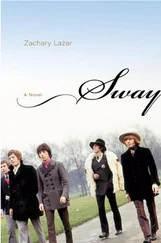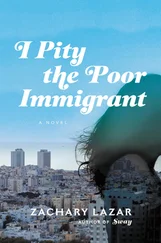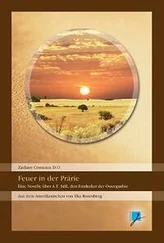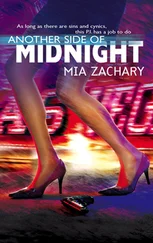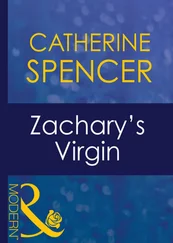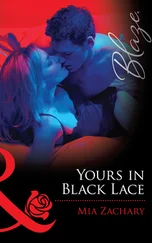Stella kept her studio in that dilapidated building downtown. Her paintings were stored away, actually piled on top of each other, dusty and covered with bed sheets. I made her promise time and again to bring at least a few home so we could hang them in the house. She never did.
As if she had anticipated the fires.
As if she had seen them.
As if she had provoked them.
*
On one side of the road, more and more houses are engulfed by flames. Over the hills in the distance, I see burning avocado farms, blackened orchards, smoldering fields. I refuse to photograph them. Instead, I take a few shots of the marshlands on the other side of the road, the deserted trailers, and the old rain gullies. I pass a trailer park with erect antennae sticking up toward the sky. They look like enormous caterpillars with their legs randomly pulled out. I photograph that, too. Then I keep driving east.
I can feel the desert now, even though I’m still driving by harvested fields filled with hay bales. At one point, the traffic stalls completely. The cars crawl one at a time under a giant pillar of smoke hovering over the highway. It’s my turn now. I pass under the dirty rainbow.
*
We met with the Artist one more time. Those days I had started giving Stella expensive, and often useless, gifts which she accepted with feigned enthusiasm. After two years of working for the company, I managed to scrape together a few days off, used the many thousands of free miles on my MasterCard, and surprised her for her birthday.
It was fall in Paris. We roamed the city all day long. It seemed that I had never seen so many people kissing. I had brought my camera but felt no need whatsoever to look at this city through the rectangular eye of the viewfinder. Everything looked boring, banal, and oh-so-déjà vu. We spent the afternoon at the Louvre. Later, I pulled out Bernard Foucault’s business card, and, despite Stella’s protests, called him. She didn’t want me to do it, insisting that he had invited us only out of courtesy. It didn’t mean that we should actually call him three years later. Besides, he would hardly remember us. But I had the feeling that the cold weed creeping through my relationship with Stella had sprouted during our first menacing meeting with that man. Something made me believe that I could turn our life back if only I settled the score with him at another meeting. That is, if I could only manage to tame my overwhelming urge to annihilate this unsuspecting man. I had spent months preparing for this rendezvous. I had spent countless hours rehearsing my lines. I had to present myself as a loving husband, a fan of the Artist, and a devout art aficionado.
We met at a small family restaurant somewhere in Montmartre. I behaved myself all through the second bottle of cabernet. But then the Artist started talking about art, acts of creation, and such, and everything went to hell.
“You know what Bernard. . romanticizing the act of creating a painting is the same as exalting the flight of a bird.”
“And. . uh, Zacque, what’s so bad about that? Why not look at the world from a bird’s eye view?”
“Monsieur Bernard, birds don’t fly because they desperately need to see the world from a bird’s eye view, but simply because they cannot find what they are looking for on the ground.”
“And what is that, Zacque?” I loathed, absolutely loathed, the way he pronounced my name, adding that short, soft “que,” that diminutive suffix fused with garlic breath.
“Bernard, listen to me! Are you listening? Listen now, the creative act of an artist and the flight of a crane or a blackbird have one sole purpose — survival. Survival!”
“And why do you think, uh, so?”
“Even the most beautiful bird, Bernard, doesn’t fly for pleasure, but for practical reasons. And actually, Bernard, I’m talking about true art, the art of your own countrymen — Rimbaud, Baudelaire, Mallarmé, Gauguin, Matisse. . about true art, not some kind of post-postmodern, neo-minimalist, monumental shit.”
“Everybody creates art the best they can.” Bernard tries not to be hurt.
“Excuse me!?” I’m already furious. “Bernard”—I slam my fist down on the table—“art is not doing what we can do! Art is doing what we can’t not do! No matter how well we do it. Actually the better you do it — the worse! This turns us from honest amateurs into jaded professionals. It turns us into craftsmen, tailors, bricklayers, shoemakers. What? I’m making no sense? Of course I’m not. What makes me happy? What about ha. .? Happiness? O-o-oh, happiness, shmappiness, love, God — these are all probably functions of the liver. Or the brain, same fucking difference. Simply pheromones, hormones, chemistry. . It’s been proven. Read scientific literature!”
I spilled wine on my shirt, ordered one last bottle, stuffed my face with crème brûlée, paid the bill, and we left.
The full moon outside energized me even more. I somehow remembered a verse by François Villon, shouted it in Bulgarian, and three youngsters in leather jackets cussed me out, I lunged at them to fight, Stella and Bernard stood between them and me to separate us, he told them something, and his soft voice managed to calm them down.
Then he walked us to our hotel, we said good night, he kissed me (French, how French), and I headed up the stairs wobbling, expecting Stella to say good-bye and follow me. Disgusted with myself, I went into the bathroom right away to take a shower and stood under the warm Parisian water for a long time. When I got out, Stella was not in the room. I sat in the chair next to the bed for several endless minutes before I dared peek through the curtains down at the little courtyard where I left them. The cobblestones of Montmartre bluishly reflected the ample moon light.
And then I saw the Artist and Stella pull away from each other. She shot a quick glance up toward our window and disappeared into the shadow of the entrance.
*
I turn on the radio. Every station is broadcasting the fires. Apparently they started yesterday. The first flames had been noticed at daybreak in Potrero, a small town north of the Mexican border. Some David Finley called 911 and said that he could see flames at a neighboring ranch, which was uninhabited. He also said that he’d stay to protect his home if things became critical. Twenty minutes later the fire was out of control. David Finley burned to death in his ranch along with his handicapped son. Forty miles north of there, a little while later, another fire had been spotted. A few miles to the west, the forests of Witch Creek blazed up, those flames were heading to the southwest, after just an hour they had reached a height of fifty or sixty meters and were moving so fast that no living creature in their path had even a prayer of escaping. In Steel Canyon, another fire was raging across the country, picking up speed, and, if it had reached Descanso Valley, hundreds of homes could have been destroyed. Bandy Canyon, Rainbow Canyon, San Martos Canyon, Palomar, Sorrento Hills, Pomerado. . Highway 15 in northern San Diego is experiencing traffic delays because of low visibility due to the smoke. The Harris Fire roared west all morning across Rancho Bernardo and Poway, destroying hundreds of structures and forcing thousands of people from their homes as it followed the same path taken by the disastrous Cedar Fire a few years earlier. Tens of thousands of people have been evacuated. Those fires — I come to understand — are being pushed by strong Santa Ana winds. The same winds are expected to ground firefighting aircraft for a second straight day. The Santa Ana winds make taming the fires impossible.
Читать дальше




